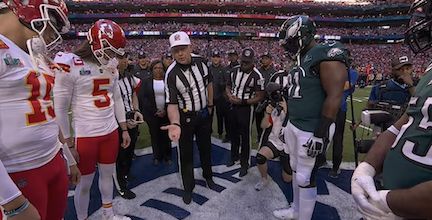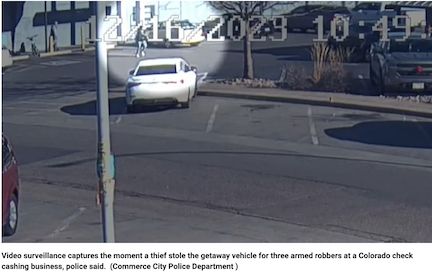Woman Who Threw Burrito Sentenced to Work in Fast Food
Rosemary Hayne lost her mind. In a moment of anger and frustration, she threw her burrito bowl in the face of a Chipotle manager. It was caught on video and the police were called in. Rosemary went before the judge and was charged with assault.
'You didn't get your burrito bowl the way you like it and this is how you respond?' the judge said during sentencing.
Rather than face prison time, she put her fate in the hands of the judge who sentenced her to work at a fast-food restaurant for two months.
Click here to view the video.

If you have ever worked in the fast-food industry, you know the lack of joy, the high stress, and the absence of gratitude many people have towards the employees. All employees have nightmare stories of how they were sometimes treated, when all they were trying to do was pay bills or clothe their kids, all the while working for next to no pay. This story resonates deeply with any former employee of Taco Bell, or McDonald's, or Burger King!
Two insights into this story:
1. Scripture tells us that we are to value others over ourselves, or at the very least, equally to ourselves (Mark 12:31). Rosemary, while frustrated, needed to express empathy for the people that work hard to serve her. Instead, she exalted herself above them and dehumanized the employee by throwing the food.
2. We feel a sense of justice at the punishment Rosemary was given. And yet, it reminds us that Jesus suffered the greatest human injustice in bearing the wrath of God that WE deserved. Imagine if Rosemary's lawyer had taken the punishment , sot that Rosemary was able to go free with no consequences. We would be incensed. Yet this is what Jesus did in our place — this is the meaning of the word propitiation. Christ took our punishment so that we would be favorably viewed by God.
"Do nothing from selfish ambition or conceit, but in humility count others more significant than yourselves" (Philippians 2:3, ESV).
"Do not take revenge, my dear friends, but leave room for God’s wrath, for it is written: 'It is mine to avenge; I will repay,' says the Lord" (Romans 12:19, NIV).
Two Kinds of Fairness
What do we mean when we say life is or is not fair? God, in His infinite wisdom, does not operate with just one definition of fairness, but juggles two.
The most obvious form of fairness is the strict administration of justice, where everyone gets exactly what they deserve, no more, no less.

However, an alternative type of fairness is achieved through impartiality, where everyone is treated the same, regardless of merit.
For example, when two teams flip a coin to determine who gets the ball first, the outcome has nothing to do with which team is more deserving. A coin is flipped because the result is impartial, and that’s what makes it fair.

So randomness is fair when it shows no favoritism, while justice is fair when it does. In what sense, then, does God seek to be fair with us? Is it with the justice of a gavel striking the sound block, or with the impartiality of a coin spinning through the air?
Jesus addressed this issue head-on when he said, “Love those who are lovable. Pray for those who are deserving of your support, that you may be just like your Father in heaven. For He causes the sun to shine on the virtuous, and He directs the rain to fall exclusively on the fields of the faithful.”
You might be thinking that doesn’t sound much like Jesus, and you'd be right. What I just cited was what Bizarro Jesus might have said if he hailed from an alternate reality where justice, not grace, reigned supreme. The actual words of Jesus, hailing from our reality, where grace is the name of the game, are as follows: “But I say to you, love your enemies, bless those who curse you, do good to those who hate you, and pray for those who spitefully use you and persecute you, that you may be sons of your Father in heaven; for He makes His sun rise on the evil and on the good, and sends rain on the just and on the unjust” (Matthew 5:44-45, NKJV).
According to Jesus, God is fair, not with a fairness that rewards the deserving, but with a fairness that demonstrates the equal value that He places on each of us. In other words, God is fair by being uncompromisingly indiscriminate.
The criteria that govern the distribution of the rain are the same criteria by which God determines what circumstances land in our lives. The determining factor is not our personal piety, but God’s boundless, impartial love. As we consider some of the unwanted things that have found their way into our lives, the surprising twist is that it was God’s indiscriminate love, not His judgment, displeasure or indifference, that placed them there!
People of faith often suggest that there are no accidents in life. Actually, there are, but according to this passage of Scripture, they’re all on purpose! Through an arbitrary distribution of life’s circumstances, God is fair while simultaneously demonstrating the indiscriminate nature of His love for all humanity.
When The Robbers Get Robbed
In a bizzarre twist of irony, three Colorado armed robbers were thwarted in their effort to rob a check cashing store. According to a Fox News report,
The masked trio went into the Hi Lo Check Cashing in the Denver suburb of Commerce City just before 11 a.m., the Commerce City Police Department said Tuesday.
During the heist, a female thief "seized the opportunity to do what criminals do – steal what was very likely already a stolen vehicle," a Tuesday police Facebook post said.
Forced to flee on foot, two of the would-be theives were soon apprehended. Police are confident the third will soon be arrested.

Some might call it Karma, others might call it comeuppance, but whatever you call it you can be sure, one way or another, your sin will be found out, and thus you will sow what you reap, just like these foolish robbers.
"... behold, you have sinned against the LORD, and be sure your sin will find you out" (Numbers 32:23, ESV).
"Do not be deceived: God is not mocked, for whatever one sows, that will he also reap. For the one who sows to his own flesh will from the flesh reap corruption, but the one who sows to the Spirit will from the Spirit reap eternal life" (Galatians 6:7-8, ESV).